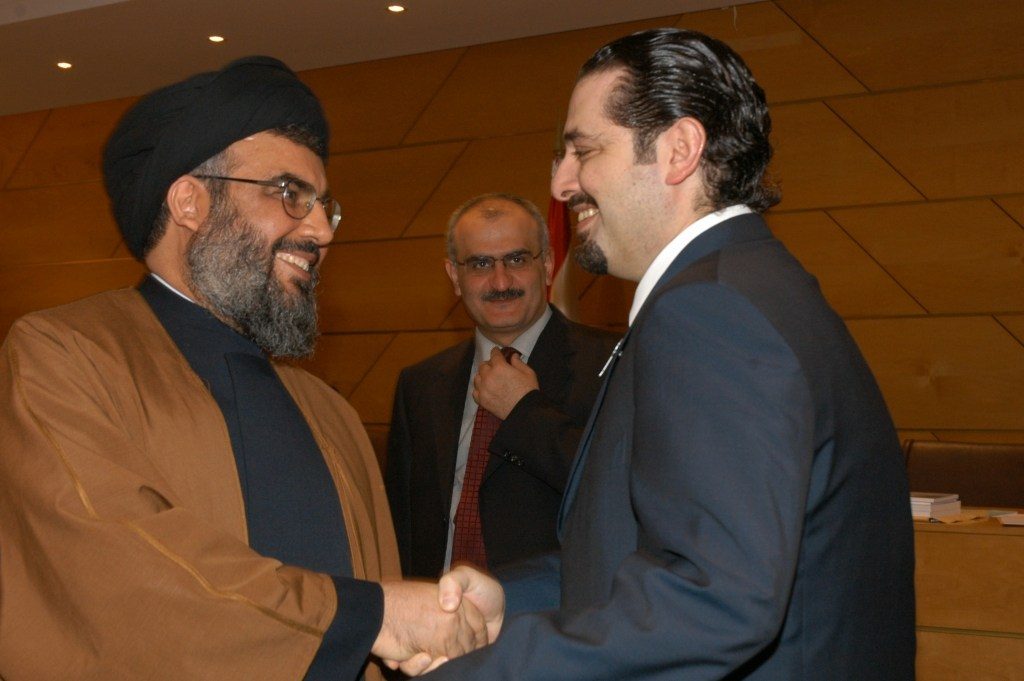Australia/Israel Review
Hezbollah extends its creeping control over Lebanon
Mar 5, 2019 | Orna Mizrahi

On Jan. 31, 2019, nearly nine months after the May 2018 elections in Lebanon, Saad Hariri announced that the formation of the national unity government under his leadership was complete. The new government, which includes 30 ministers, is another stage in the ongoing process of Hezbollah’s consolidation of its power within the Lebanese political system. In the elections, the Hezbollah camp (the March 8 Alliance) received a 72-member majority out of the parliament’s 128 members (even though Hezbollah itself did not increase its strength), while Hariri’s Future Movement lost a third of its representatives.
The results of the elections forced Hariri to consent to almost all of the demands made by Hezbollah during the prolonged, tiresome negotiations over the make-up of the government. The organisation’s demand to expand the number of its ministers from two to three was ostensibly only partially granted, but in a way that serves its interests. It was agreed that its Minister of Youth and Sports would continue; a senior Hezbollah figure would be appointed Minister of State for Parliamentary Affairs (an important position due to the influence over budgetary decisions of parliamentary committees); and Jamil Jabak, who is affiliated with the organisation even though he is not a member, would be appointed Minister of Health (Jabak served as Hezbollah leader Hassan Nasrallah’s personal doctor). This occurred despite United States opposition to his appointment and Lebanese concerns about limitations on the humanitarian aid to the Ministry, in light of the sanctions that the US Administration has imposed on Hezbollah.
Hezbollah’s insistence on the health portfolio is not coincidental, as the ministry has a large budget (fourth largest – some A$475 million, the majority of which is not designated to specific ends), that will enable the organisation to strengthen its standing among the Shi’ite population, including by providing treatment to those injured in the war in Syria, and increase support from the greater Lebanese population, among whom Hezbollah is trying to expand its influence and control.
In the new government, the Hezbollah camp has 18 ministers, who dominate almost all of the important ministries (including defence, foreign affairs, health, law, economy, energy and agriculture), with only 12 ministers from Hariri’s camp.
In presenting the platform of the new government on Feb. 6, 2019, Prime Minister Hariri announced that his government would take action to improve Lebanon’s economic and social situation, and advance quick and efficient – albeit painful and difficult – reforms. In addition to the political instability, Lebanon has suffered from chronic dysfunction for years, which in recent months has led to protests throughout the state. It is doubtful whether the new government will succeed in coping with the challenges it faces, among them:
• The deep economic and financial crisis: Lebanon has a large foreign debt. According to Moody’s credit rating agency, it is the country with the third-highest debt – 150% of GDP. The International Monetary Fund even expects that the debt will reach 180% of GDP within five years. French President Emmanuel Macron convened an international economic conference in Paris in April 2018 with the purpose of supporting Lebanon. At the conference US$11 billion in loans were pledged, but so far monies have not been transferred due to the paralysis of the transition government.
• The poor state of infrastructure: The main issues are a severe shortage of electricity and water, the lack of other vital infrastructure, and the powerlessness of Lebanese authorities to provide residents with vital services.
• The refugees from Syria: Lebanon hosts some 1.5 million refugees – it is the country that has taken in the highest number of Syrian refugees relative to its population (approximately 25% of its population). Despite external aid, the refugees add another burden to the state and affect the labour market in a way that contributes to increased unemployment among the general population. These refugees are expected to return to Syria very slowly, if at all.
• Corruption: All of Lebanon’s systems – political, legal, public administration, and even the police – are mired in corruption (in the 2018 corruption index, Lebanon received a grade of 28%). The weakness of the governing systems is also exploited by Hezbollah, which uses bribes to buy influence.
Implications for Israel
The strengthening of Hezbollah, Iran’s proxy in Lebanon, within the country’s political system, along with the organisation’s ongoing military buildup, are negative developments for Israel – Hezbollah deepening its foothold within the political system strengthens its self-confidence and creates opportunities to expand its influence.
However, the more Hezbollah’s power within the Lebanese system grows, the more responsibility it has for Lebanon and for maintaining its political achievements and interests. In addition, the organisation has recently coped with a series of difficulties following its involvement in the war in Syria and the expectation that Iran will be forced to reduce its support due to its own economic difficulties. These constraints seem to have helped curb the organisation’s response to Israel’s achievement in uncovering the tunnels penetrating into Israel from Lebanon, but there is no guarantee that this restraint will be maintained in the future.
This latest stage in Hezbollah’s takeover of the Lebanese political system strengthens claims by Israeli PM Binyamin Netanyahu regarding Iran’s extensive influence over events in Lebanon – immediately following the formation of the government, the Iranian Foreign Minister travelled to Lebanon with a large delegation, in order to cultivate further political and economic relations.
Moreover, Hezbollah’s political achievements strengthen Israel’s stance regarding the responsibility of the Lebanese state for the organisation’s actions, and will help Israel in its efforts to justify the legitimacy of extensive military actions against Lebanese state targets, and not just Hezbollah targets, if this becomes necessary in the next war.






